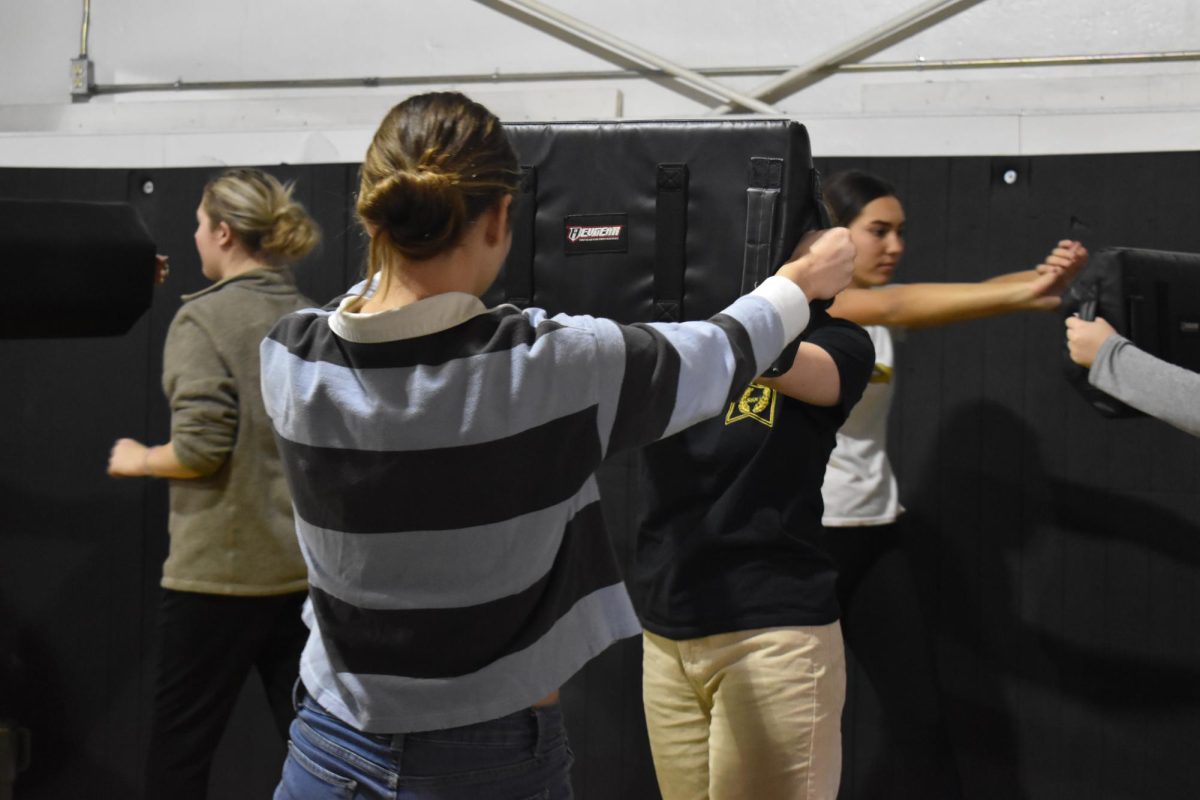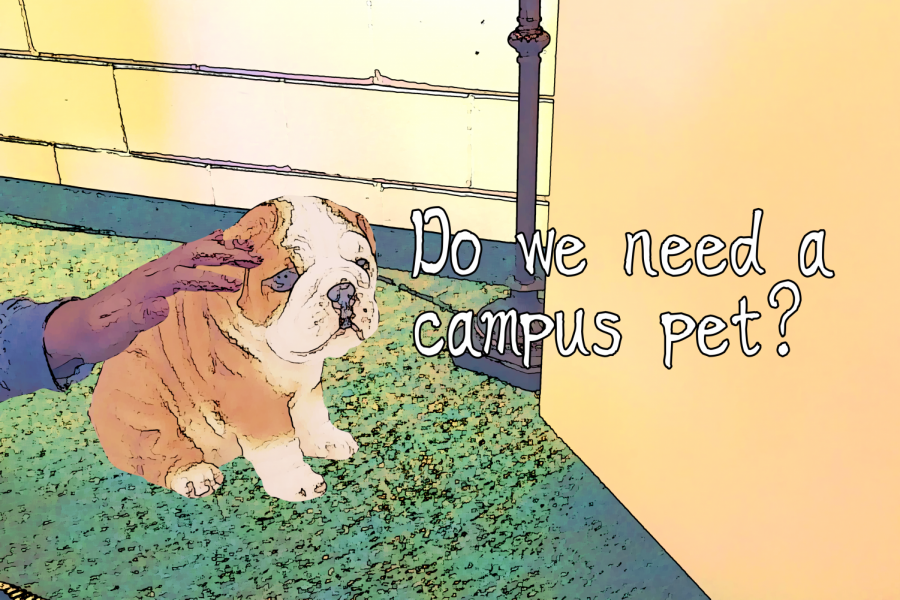Let’s get a campus pet
The need for a morale-building canine has never been more real.
This artwork by Evanthia Stirou depicts a potential campus pet!
January 20, 2021
School is stressful, but it can be especially stressful during a worldwide pandemic. Although it can’t be done this year, I think there’s an easy solution to lower this pressure on students in the future: A campus pet, a dog specifically.
There are many arguments to be made for why a dog belongs on the Saint Stephen’s campus. First, the obvious: You’d be hard pressed to find a person on-campus who doesn’t like dogs, especially a student. If you need evidence of this, then look to the past experiences that Saint Stephen’s has had with dogs on campus.
Two years ago, the Upper School was visited by the Southeastern Guide Dogs to help relieve stress on students during an exam week. The dogs lined up in the halls for students to pet and interact with. Students made appointments to visit the pooches in between exams.
This event was a huge hit, begging the question of why the concept can’t be replicated permanently with a campus pet.
There are other reasons a dog would be beneficial to Saint Stephen’s campus life, too.
For example, research listed by different organizations such as Charlotte’s Litter and PAWS for People strongly supports the idea that guide or therapy dogs have health benefits, such as lowering anxiety and blood pressure, increasing confidence and social skills, and drastically increasing positive moods.
The mere presence of a dog could help students who are dealing with issues such as anxiety or negativity brought on by their school or home situations.
For an example of a school that has had a successful experience with a campus pet, take a look at Franklin High School in Portland. There, they have a full-time therapy dog named Archie, who is trained to interact with people and is valued by both students and teachers. “It is a respite for some of our students to just be in Archie’s presence,” said the school’s principal Chris Frazier.
It’s worth noting there are some obvious arguments against getting a campus dog, which are likely the reasons why Saint Stephen’s hasn’t attempted to do so in the past. One is that a dog would be a huge responsibility for the school, as it would need to be taken care of on and off-campus.
There are a few potential solutions to this problem, such as rotating responsibilities to faculty members, or assigning the caretaking to students who want to volunteer to help feed, walk, or house the dog. The latter would be an effective way to help students prepare for future responsibilities in their careers.
The possibility of a student with allergies might also deter the school, but this can be fixed if the students are willing to sign forms that show they’re okay with the dog being on-campus. If some students aren’t, then the dog can be confined to spaces where the allergic students don’t have to interact with it.
To conclude, there’s no reason why Saint Stephen’s can’t attempt to have a campus dog. The dog would be beneficial to the students for multiple reasons and any problems that come from it are solvable ones.
Since Saint Stephen’s has always put effort into making sure it can be as much of a non-stressful environment as possible for its students, getting a campus dog could be a valuable way to improve the community.
3




































































Mr Forrester • Jan 20, 2021 at 7:24 pm
My dog, Costello, would love to roam free on campus!